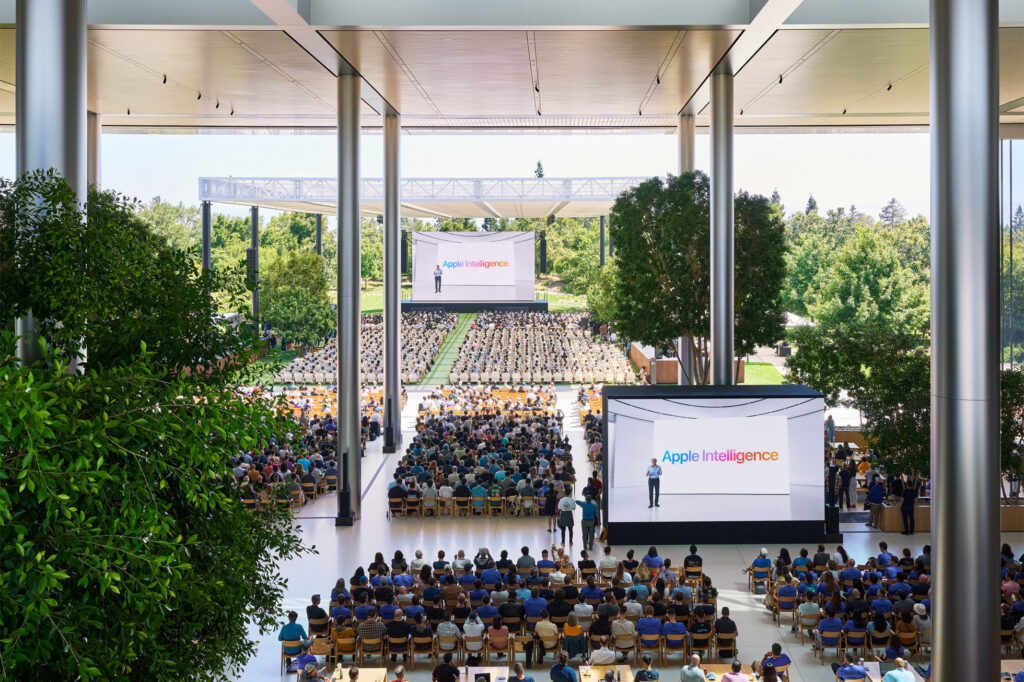Apple announced on Friday that it would block the highly anticipated Apple Intelligence AI feature, iPhone Mirroring, and SharePlay screen sharing for EU users. While not entirely unexpected, the decision highlights the growing tension between rapid technological advances and the EU's stringent regulatory framework, particularly the Digital Markets Act (DMA) and General Data Protection Regulation (GDPR).
From the EU's perspective, this delay is both a victory and a challenge. It demonstrates the effectiveness of regulations that protect user privacy and promote fair competition. The DMA and GDPR have forced tech giants to pause and rethink their approach, potentially resulting in more user-centric and privacy-conscious products. However, this victory comes at a price: the risk of falling behind in the global AI race.
As other regions pursue less restrictive policies, the EU must carefully balance its restrictive stance with the need to foster innovation and remain competitive in the global technology sector. For Apple, the delay is likely a calculated move. The company supports the decision, citing security and privacy reasons, and it will help it maintain its brand image as a tech giant with a reputation for prioritizing privacy.
Overall, this may maintain user trust while giving Apple time to adjust its AI features to comply with EU law. But it also creates competition and increases the risk that Apple cedees potential ground to competitors that may be able to navigate the regulatory environment more quickly. That said, the EU delays of AI offerings from other tech giants, such as Meta and Google, are indicative of broader challenges across the industry.
Many of these companies argue that they need large-scale, trained AI systems to work properly, but that GDPR's restrictions severely limit what they can do in practice. This raises the question: can advanced AI technology coexist with some of the world's strictest data protection regulations?
Apple's AI products will no doubt face increased scrutiny compared to its competitors. The fundamental problem is that modern AI systems are huge data hogs. To deliver personalized and effective services, these AIs need access to huge data sets, potentially violating GDPR principles such as data minimization and purpose limitation.
However, Apple may have an advantage here: its focus on on-device processing and differential privacy approaches could help it develop AI features that are more compliant with EU standards. If successful, this could establish a new standard for privacy-preserving AI and give Apple an advantage in the European market.
This isn't the first time Apple has faced EU regulation: In September 2021, the company first complained about a part of the DMA rules that forced it to allow users to sideload apps from the App Store. Apple argued that doing so put users' privacy and security at risk, reinforcing its long-held belief in the sanctity of a closed ecosystem.
Additionally, Apple's recent move to ban Progressive Web Applications (PWAs) in the EU sparked developer backlash. Many saw the decision as another attempt to resist regulatory pressure. However, in an unexpected turn of events, the EU concluded that Apple's treatment of PWAs did not violate the DMA guidelines, prompting the company to reconsider its decision.
Global impacts: Fragmentation or harmonization?
These cases highlight the complicated relationship between tech companies and regulators: Companies like Apple are known for pushing back against regulations they perceive as too strict, but they also must be prepared to adjust their strategies if their understanding of the rules is called into question.
The EU's delay in rolling out Apple's AI capabilities is more than just a roadblock. It illustrates the complex relationship between law and innovation. Finding the balance will be crucial going forward. Regulators and the tech industry must adapt together to build a world where powerful AI can operate while respecting human rights and privacy.
This is a reminder that in the ever-changing world of AI, there is no clear path to follow. Governments need to be prepared for new thinking and creative formulation if they want to harness the power of AI for good in a way that is true to the values and rights that underpin our digital society.
But the timing of this dispute raises questions about the future of global technology development: Will the digital environment continue to remain fragmented, with different capabilities available in other regions based on what is permitted by regulations in that jurisdiction, or will we move toward a more harmonized global approach to technology regulation and development?
As consumers, we are constantly caught between the forces of innovation and regulation. As technology advances, we want to adopt the latest AI-powered features that improve our digital experiences and serve our individual needs. But it's equally important that we prioritize privacy and data protection.
Companies like Apple face the challenge of pushing the boundaries of what is possible with AI and establishing new standards for privacy and security. Taken together, Apple's decision to postpone the introduction of its AI capabilities in the EU is a talking point in the ongoing debate about innovation and regulation. It highlights the need for more sophisticated and collaborative strategies to shape our digital future.
To navigate this path, it will be increasingly important to engage in an open and constructive dialogue with all stakeholders – technology companies, regulators and users – to find solutions that foster innovation while safeguarding fundamental rights. Indeed, as we navigate these rough waters, the future of AI in Europe and globally may be fundamentally at risk.
(Image courtesy of Apple)
reference: Musk ends OpenAI lawsuit while criticizing Apple's ChatGPT plans

Want to learn more about AI and big data from industry leaders? Check out the AI & Big Data Expo in Amsterdam, California and London – this comprehensive event will take place alongside other major events such as Intelligent Automation Conference, BlockX, Digital Transformation Week and Cyber Security & Cloud Expo.
Find out about upcoming enterprise technology events and webinars hosted by TechForge here.


